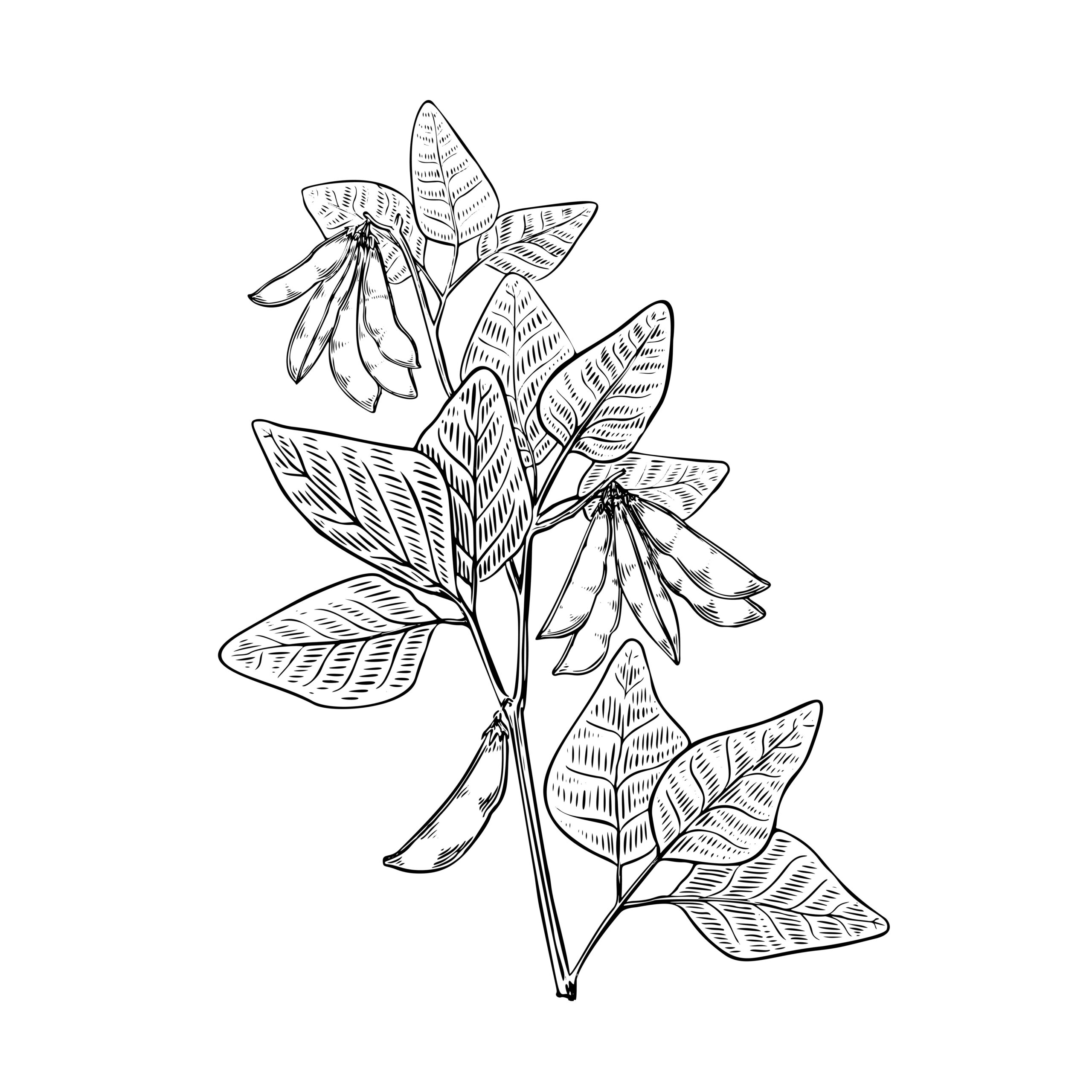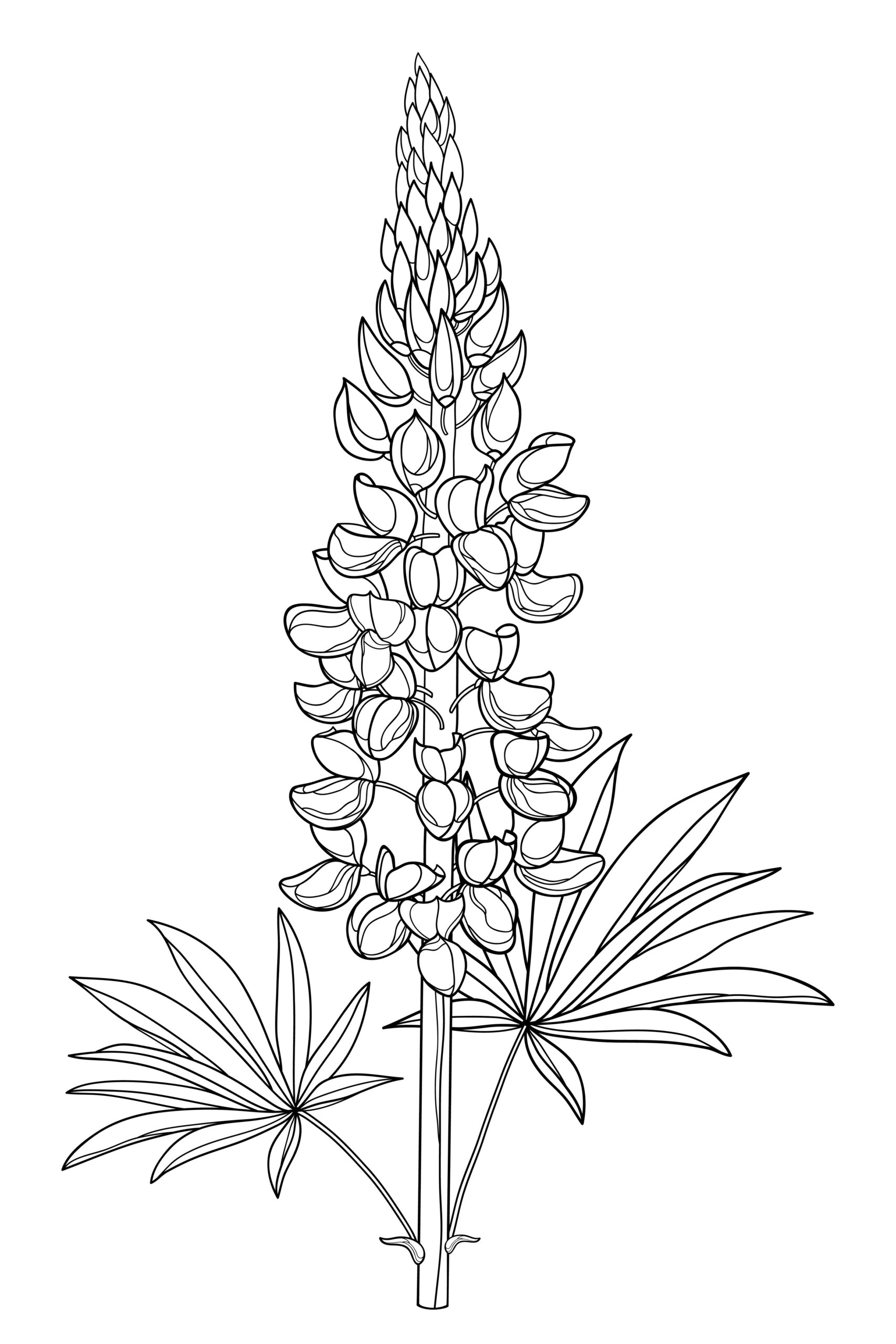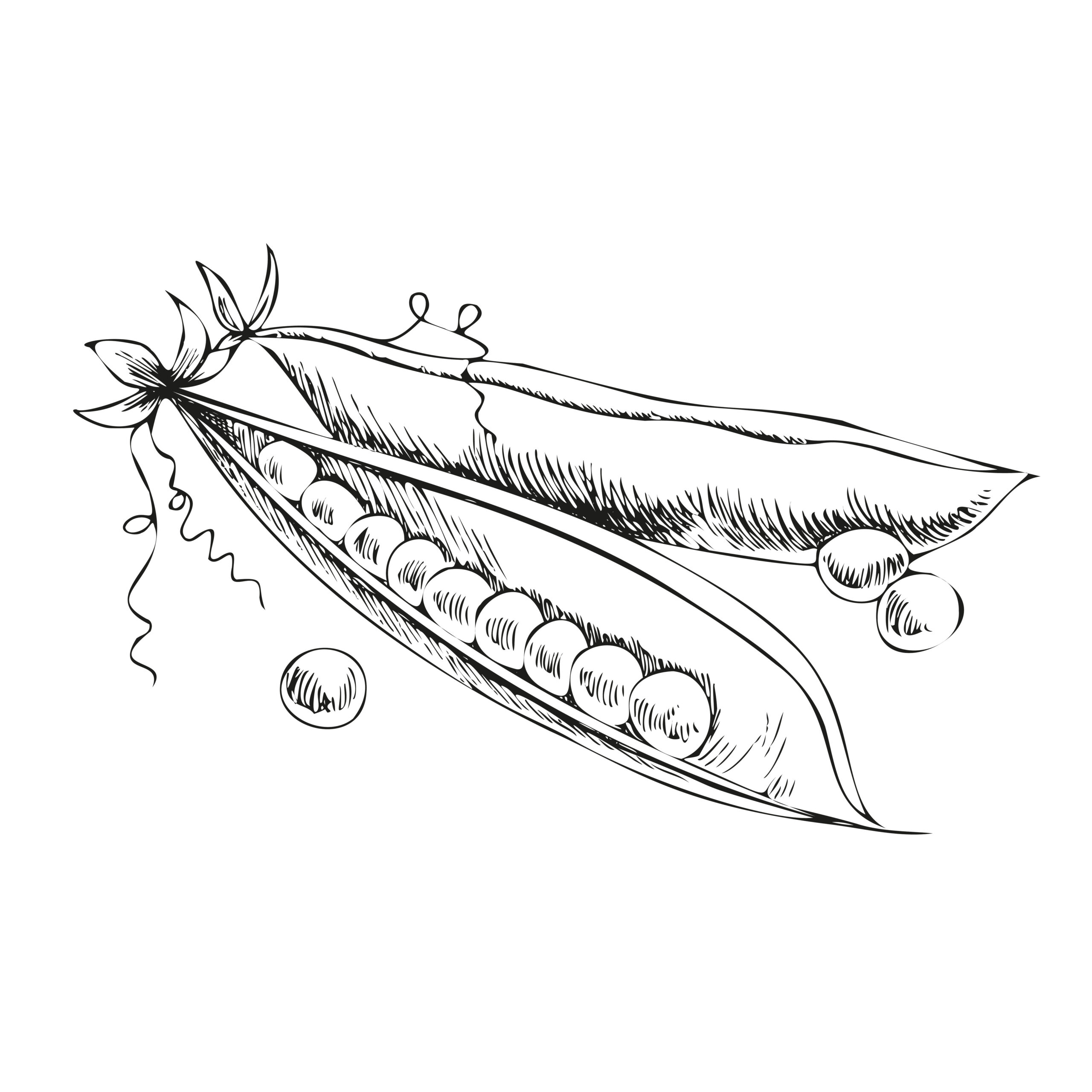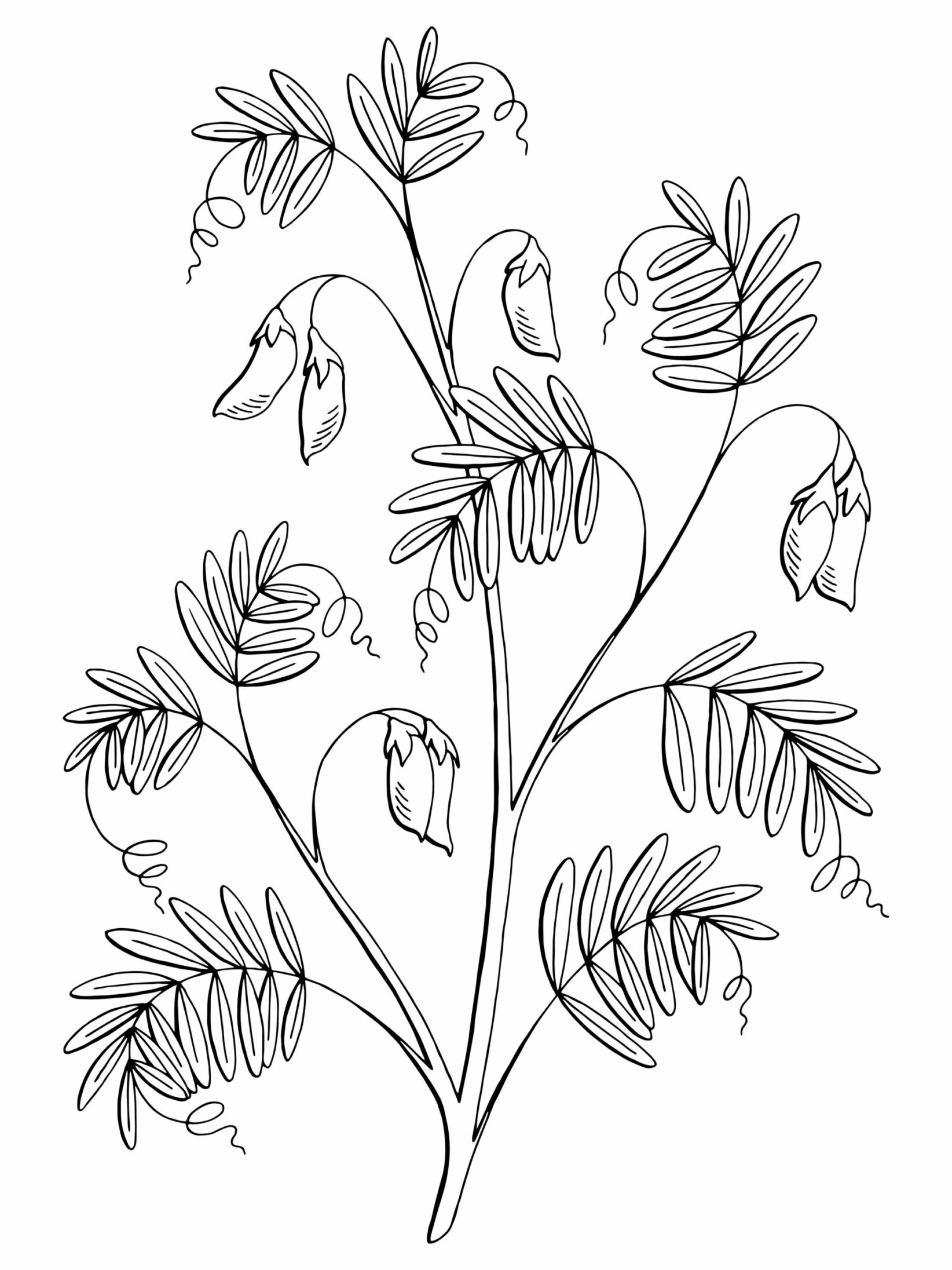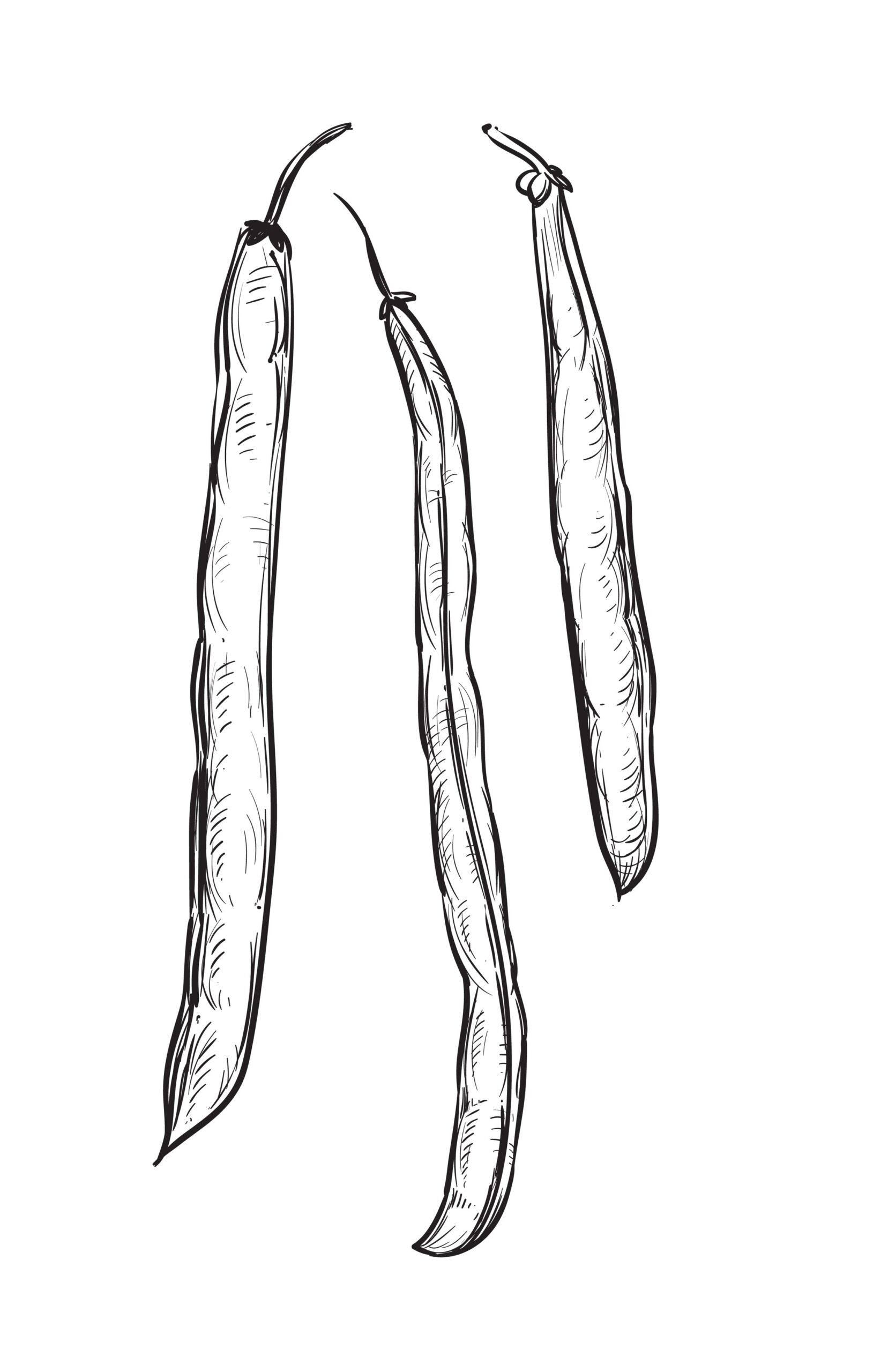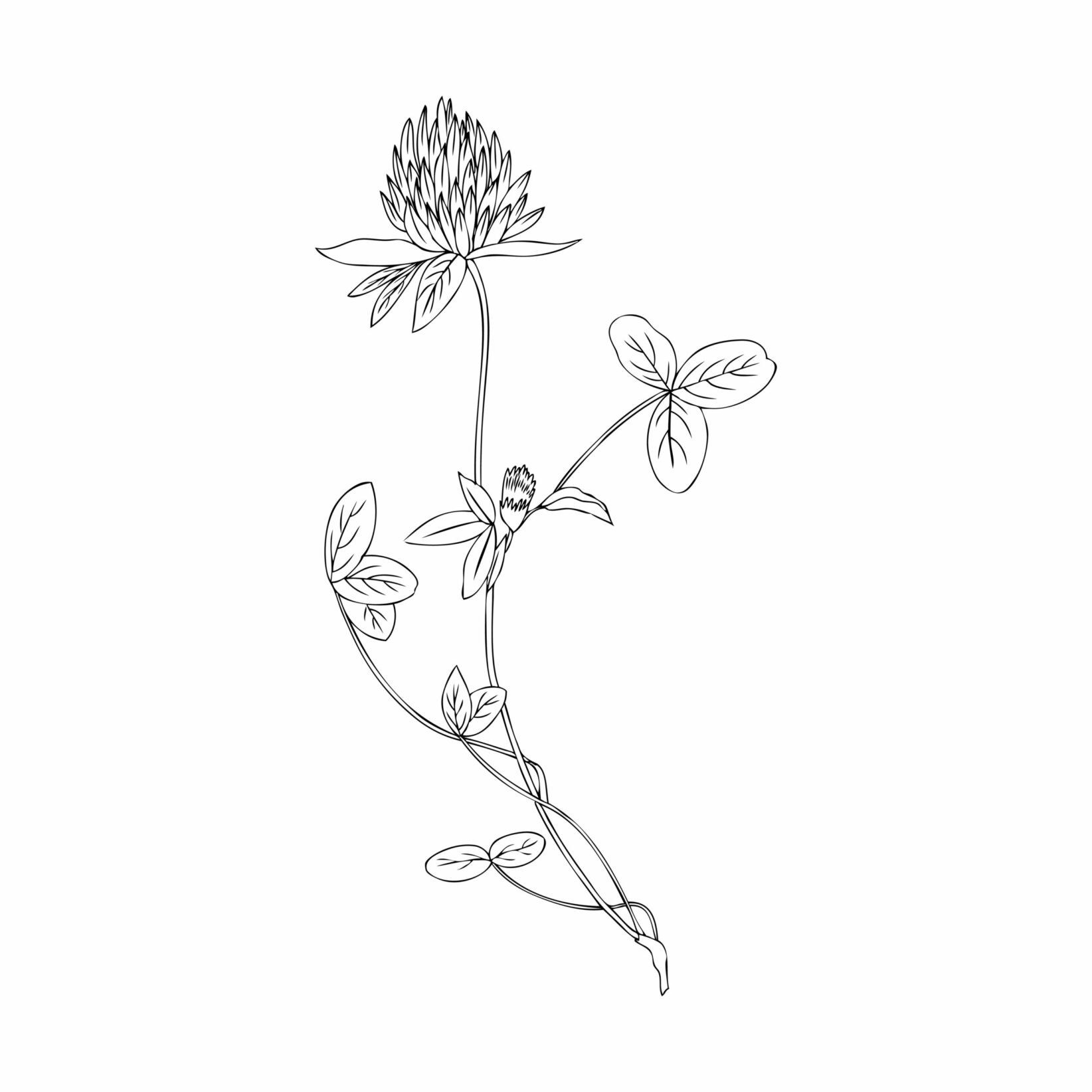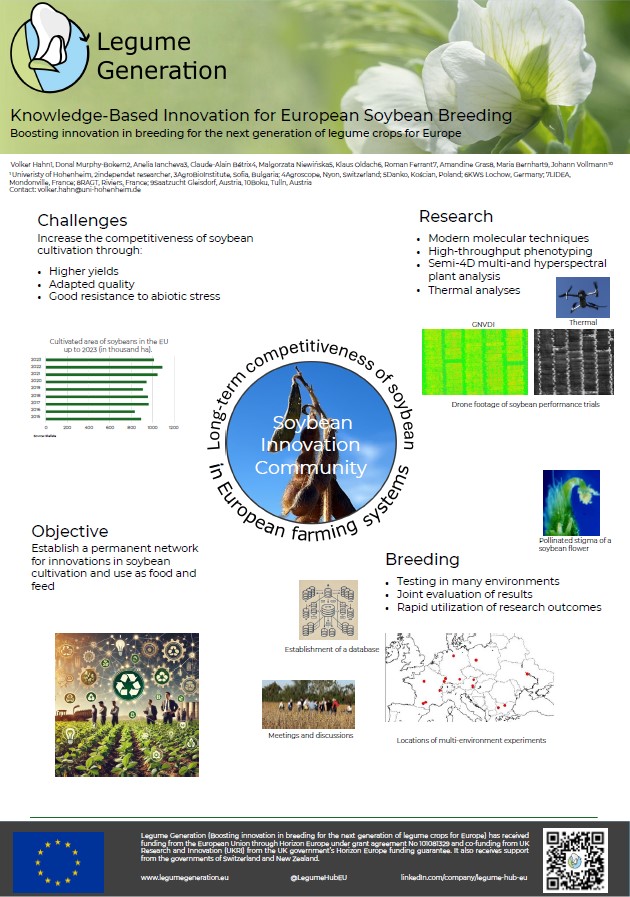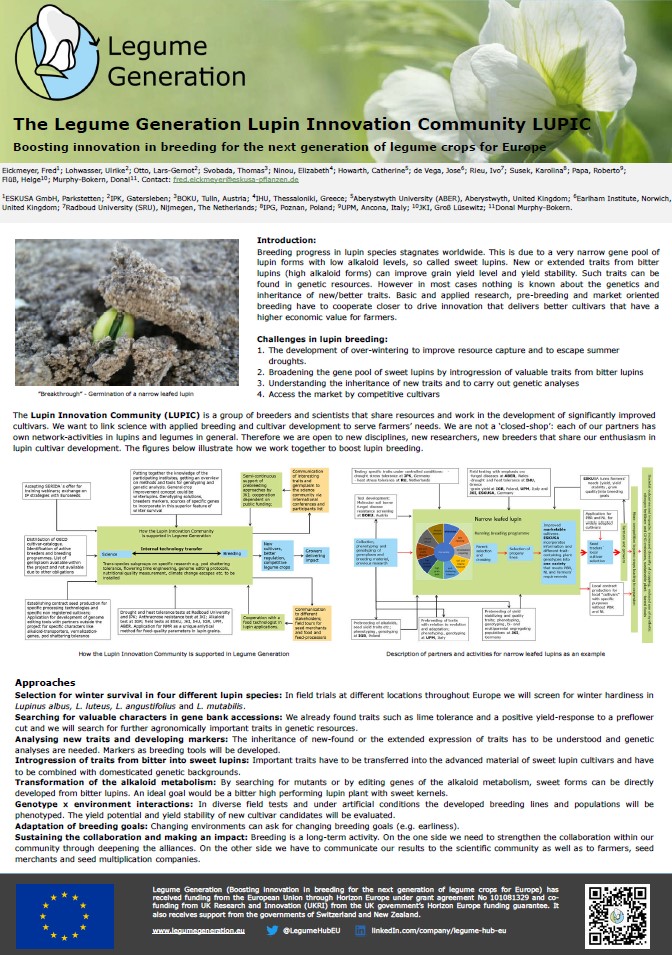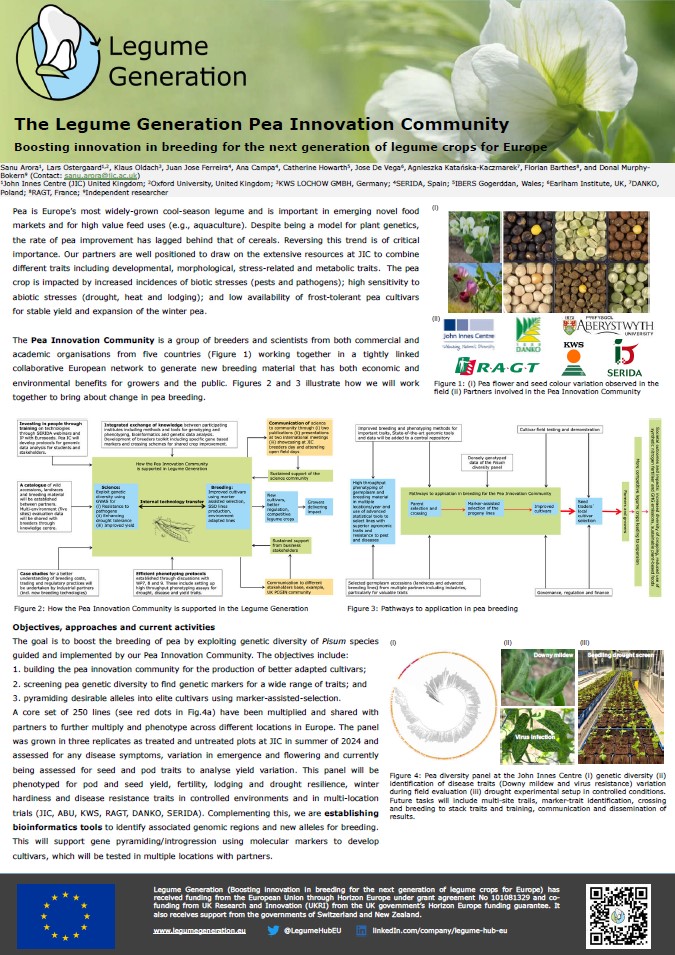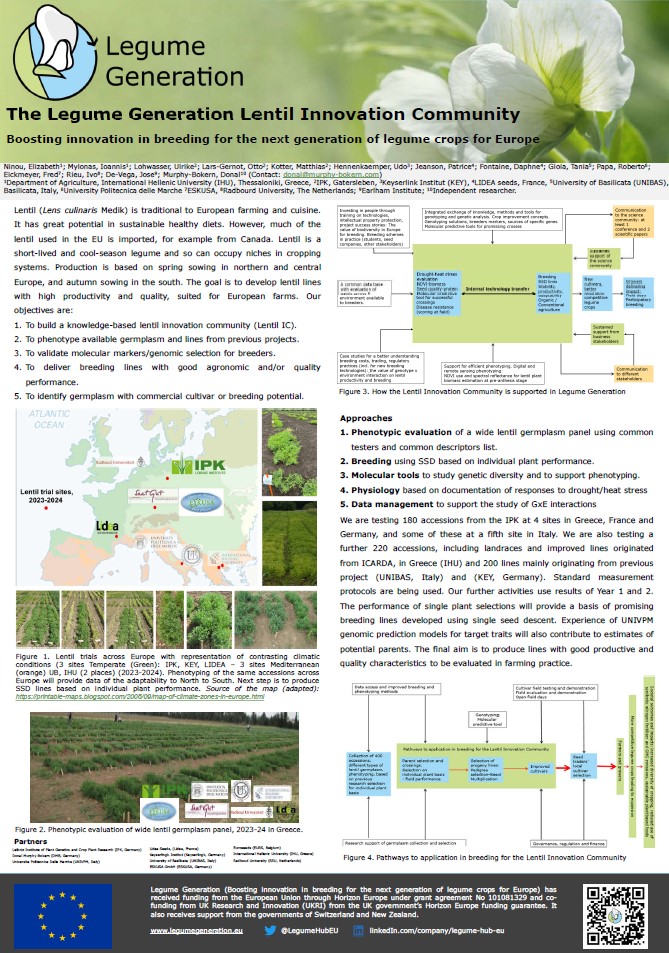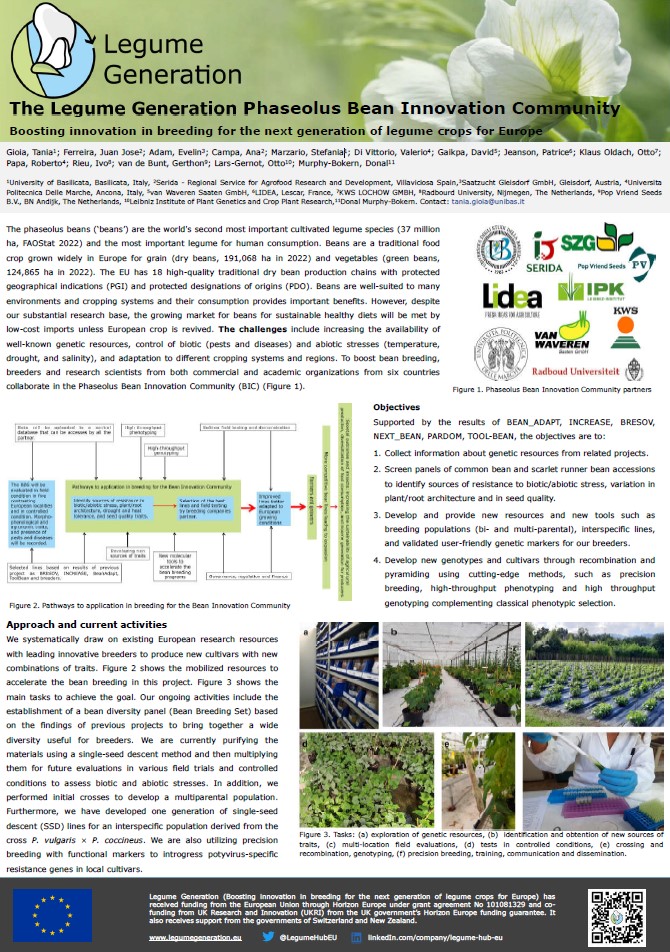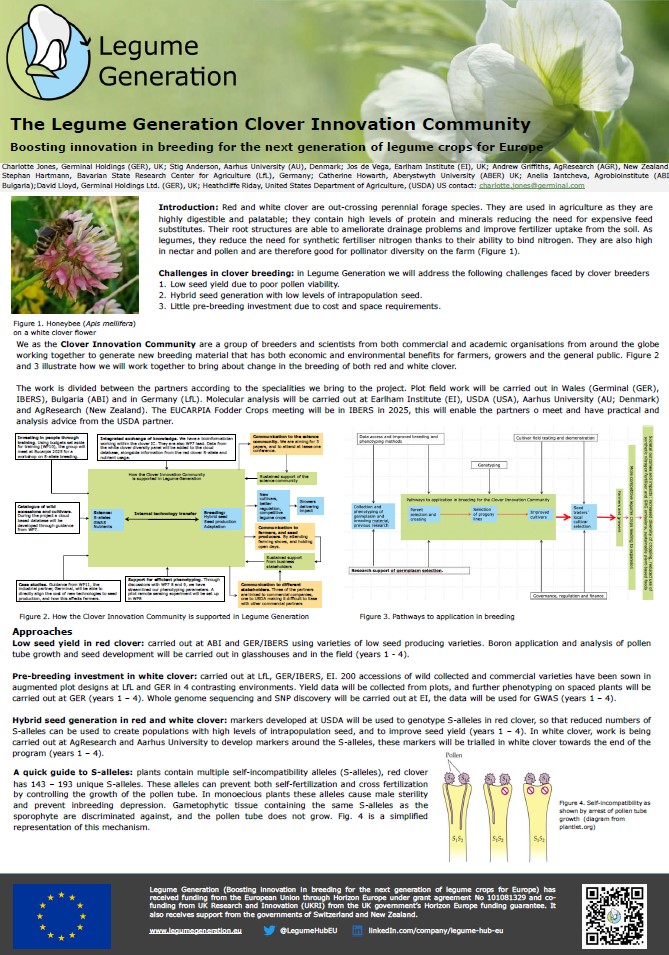Innovation communities
The Legume Generation consortium aims to drive innovation in legume breeding across Europe by merging the entrepreneurial expertise of breeders with the diverse creativity of the research base. Six breeder-led innovation communities, each focused on a specific species, establish a transdisciplinary framework connecting practical breeding with the research base. The innovation communities (ICs) drive pre-breeding and breeding efforts, pooling resources to enhance competitiveness against major crops like wheat. These ICs consolidate pre-competitive innovation work to boost on-farm competitiveness by focusing on yield enhancement, stress tolerance, resource utilization, and nutritional quality. Membership extends beyond the consortium to ensure sustainability, with at least 15 case studies planned to assess governance and cost-effectiveness. New tools aim to reduce breeding costs.
The six innovation communities with their breeding objectives:
Soy IC
Lupin IC
Pea IC
Lentil IC
Phaseolus Bean IC
Clover IC
The Innovation Communities are supported by objectives providing enabling services:
- To establish a digital “knowledge centre” that catalogues legume species and varieties, desired characteristics and traits (e.g., ideotypes), and breeding methods and research outcomes generated by the crop innovation communities and other stakeholders.
- To deliver training to support breeding gains determined by the needs and expectations of our innovation communities.
- To support breeders with validated novel resources (genotypes, methods, and tools) for species- specific genetic improvement plans (Supporting genetic improvement) by developing cost-effective molecular and genomic selection methods.
-
To assess cost effectiveness of methods and develop governance and financial models, and business plans for inclusive plant breeding (Governance and finance models) by collecting and analysing insights through at least 15 case studies supported by the six innovation communities.
-
To support the screening, demonstration and testing of germplasm and new cultivars by different actors in different regions/conditions through trait expertise groups, development of optimal, standardised phenotyping protocols, and evaluation of advanced phenotyping methods.
-
To support consortium-internal and external dissemination and communications, including the extension of the European Legume Hub for sharing of knowledge and best practices.
